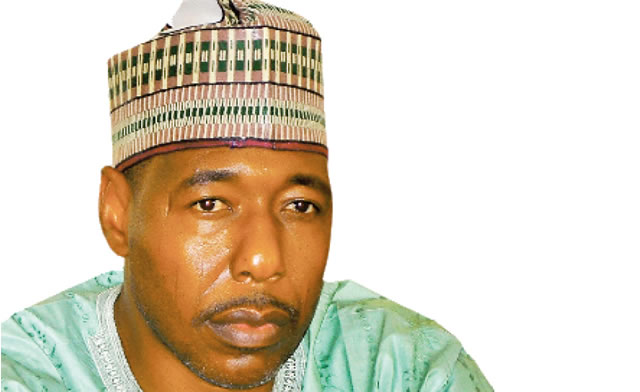The political landscape of Borno State, Nigeria, has recently been embroiled in controversy following allegations leveled against Governor Babagana Zulum by political activist Omoyele Sowore. Sowore, the African Action Congress presidential candidate in the 2023 elections, accused Zulum of operating a clandestine torture chamber in Maiduguri, dubbed “The Crack FC,” purportedly used to detain #EndBadGovernance protesters for extended periods, exceeding a year. Adding fuel to the fire, Sowore also alleged that Zulum diverted billions of naira meant for public welfare into programs benefiting Boko Haram insurgents, while simultaneously incarcerating minors arrested during the protests. These claims, disseminated through various social media platforms, have sparked a heated debate and fueled public speculation.
Governor Zulum’s administration vehemently denies these allegations. Abdulrahman Bundi, Zulum’s Senior Technical Assistant on Print and Digital Communications, categorically dismissed Sowore’s claims as baseless fabrications, products of Sowore’s imagination and a calculated attempt to misinform the public. Bundi questioned the rationale behind linking the governor to the #EndBadGovernance protests, emphasizing that the demonstrations primarily fell under the purview of the Federal Government, not the state government. He firmly asserted that no such detention facility as “The Crack FC” existed, challenging the veracity of Sowore’s information and underscoring the importance of responsible reporting and fact-checking.
Addressing the accusations regarding financial impropriety and support for insurgents, Bundi clarified the nature of the Deradicalisation, Rehabilitation, and Reintegration (DRR) program. He explained that this multi-stakeholder peace initiative was not solely targeted at Boko Haram insurgents but primarily focused on rehabilitating and reintegrating victims of the insurgency, including those abducted, displaced, or forcibly conscripted by Boko Haram. Bundi stressed that the program’s primary beneficiaries were the victims of the conflict, emphasizing the importance of distinguishing between supporting victims and aiding perpetrators.
Bundi further encouraged public scrutiny and transparency, urging citizens to access the readily available DRR document online to understand its true objectives and scope. He criticized uninformed commentary and emphasized the importance of evidence-based discourse. By providing access to the document, Bundi aimed to dispel misconceptions and counter the spread of misinformation, promoting an informed public discourse grounded in factual accuracy rather than speculation.
The controversy surrounding these allegations highlights the sensitive and complex political landscape of Borno State, a region grappling with the devastating consequences of prolonged conflict. While Sowore’s accusations have ignited public debate and raised concerns regarding human rights and governance, Governor Zulum’s administration maintains its innocence, asserting that the claims are unsubstantiated and politically motivated.
The ongoing exchange underscores the importance of independent verification and responsible dissemination of information, particularly in conflict-ridden regions where misinformation can exacerbate existing tensions and undermine peacebuilding efforts. As the public awaits further clarification, it remains crucial to prioritize factual accuracy and avoid perpetuating unsubstantiated claims that could further polarize the already fragile political climate. The focus should remain on ensuring accountability, promoting transparency, and upholding human rights for all citizens of Borno State.


